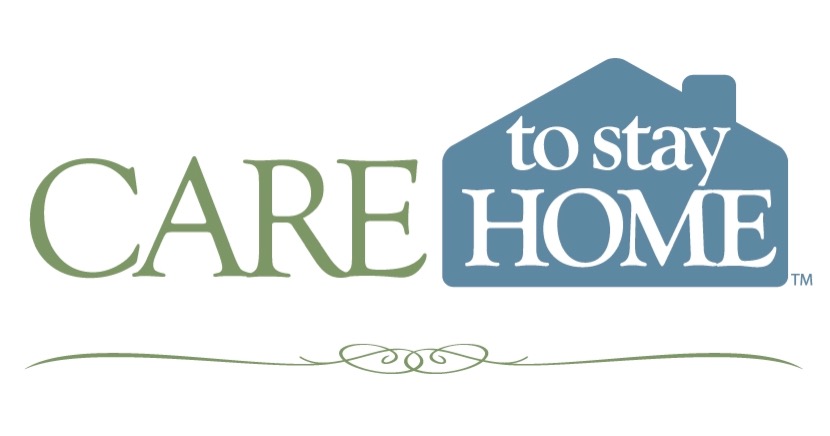30 Nov Dehydration in Aging Adults
We often think of dehydration as a problem for athletes or someone stuck in the desert, but dehydration can be a serious danger for aging adults. Knowing the risk factors and signs of dehydration in elderly adults can help prevent this often overlooked health risk from occurring.
Dehydration as an Overlooked Health Risk
According to research, dehydration affects 17% to 28% of elderly adults and is a common cause of hospitalization and emergency room visits. Dehydration causes its own set of problems and can also complicate other medical conditions.¹
Anyone can become dehydrated when the amount of water lost from the body is more than the water taken in. The body loses water by excreting it in urine and feces, but water is also lost through the skin and just by breathing. Dehydration in elderly adults is particularly dangerous.¹
Why Are Aging Adults More Susceptible to Dehydration?
As we age, the risk of dehydration becomes more common for a number of reasons. There are many factors that contribute to dehydration in elderly adults.
Some of the reasons that older adults are more prone to dehydration are:
- Diminished thirst signals. As we age, the complex system that triggers the urge to take in fluids when needed tends to not work as well as it used to. This can lead to older adults just not drinking enough because they don’t feel thirsty.²
- Changes in body composition. Everyone’s body undergoes a variety of changes as it ages, and some of those changes result in an overall reduction of bodily fluids in the elderly. In addition, older adults may have trouble regulating body temperature, which can result in losing more water through sweating.³
- Changes in kidney functioning. Many conditions can affect kidney function in addition to the general changes that accompany aging. The kidneys are the most important part of the complex system that regulates fluid balance in the body. When their functioning is impaired even a little, it can cause big problems.¹
- Many medications can affect the fluid balance in the body. Some medications used to treat cardiovascular issues, such as high blood pressure or congestive heart failure, are particularly prone to increasing the likelihood of dehydration in elderly adults.¹
- Cognitive decline. Issues with memory come with aging, and some older adults may also be struggling with dementia or diseases such as Alzheimer’s. These conditions can make it harder for elderly adults to remember to take fluids or even realize when they are feeling thirsty.²
- Medical conditions. New or undiagnosed medical conditions can create situations that increase the chance of dehydration. Diabetes, in particular, can cause excess urination that can lead to fluid imbalance in the body.²
</>
Signs and Symptoms of Dehydration in Elderly Adults
It is important to watch for signs of dehydration in older adults. Some of the symptoms of dehydration can mimic other conditions and may go overlooked until the problem becomes much more dangerous.²
Some of the more obvious signs of dehydration are:
- Dry mucous membranes. Reports of dry mouth or dry eyes should be taken seriously. These are often the first signs of dehydration.²
- Darker colored urine. Often the most easily noticed effect of reduced fluid intake is the darkening of urine to a dark yellow or deep gold color. If urine color becomes brown or red, get medical attention immediately.³
- Dry skin. While the elderly tend to have dry skin, it is important to note if there are changes such as an increase in itching, flaking, or “tenting,” which is the lack of elasticity and return to normal position when skin on the back of the hand is gently pinched.⁴
- Reduced urine output or constipation. Not enough fluid coming in will mean less fluid coming out. Fewer trips to the bathroom or a tendency toward constipation can be signs of not getting enough fluids.³
- Increase in leg and muscle cramps. Muscles need adequate fluids and electrolytes to function well. A lack of fluids, and the salts and minerals that come with them, can create painful muscle spasms.¹
</>
If dehydration goes on for too long, the situation can become a health crisis. Dehydration not only causes problems in organ and systems functioning but can also create a dangerous fall risk for elderly adults.²
Some of the more severe dehydration symptoms are:
- A sense of vertigo or dizziness, particularly upon rising to standing from a sitting or lying position, can be a sign of dehydration.²
- Increased heart rate. When there is less fluid volume in the cardiovascular system, the body tries to compensate by moving the blood around more quickly. This results in an increased or rapid heart rate, particularly with exertion.⁴
- Falls and fainting. If the cardiovascular system cannot compensate well enough for the lack of fluid volume, the dehydrated older adult may lose consciousness or become unstable enough to fall.³
- Becoming disoriented. Severe dehydration can create cognitive issues resulting in confusion or the appearance of being disoriented.³
- Losing coordination or the ability to walk. Lack of fluids can lead to a lack of coordination and muscle issues, which can become severe enough to impair the ability to carry out basic tasks such as feeding oneself or ambulating.
- Appearing sleepy without reason. A change in the level of consciousness or having trouble rousing someone from sleep could be a symptom of severe dehydration.²
- Vomiting or diarrhea. Severe dehydration can so dysregulate the body systems that it can result in vomiting and diarrhea, which will rapidly make the situation even worse.²
</>
Any of these more severe symptoms are cause for immediate medical attention. Call your doctor immediately or seek medical attention at the nearest emergency room.²
Complications of Dehydration in Elderly Adults
In addition to the risks mentioned above, dehydration can have many negative consequences for the older adult.
Ongoing dehydration in the elderly can lead to medical issues and potential illnesses. Lowered fluid levels concentrate the blood leading to potentially elevated sodium levels, as well as a higher chance of blood clots.
The risk of a urinary tract infection or kidney infection goes up when anyone is dehydrated. These risks increase when the person is an older adult.
Dehydration can also cause medications to lose effectiveness, as well as increasing the likelihood of medication side effects or unwanted drug interactions.
In extreme cases, dehydration can lead to such lowered blood volumes that hypovolemic shock may result.⁵
How to Prevent Dehydration
Of course, drinking more water every day will prevent dehydration. This can be particularly challenging for the older adult who does not feel the urge to drink as much as they age.
Some tips for increasing fluid intake are:
- Try flavored waters, diluted juice, or herbal teas.
- Offer snacks like Jello, soup, or yogurt.
- Set a reminder alarm to prompt regular intake of fluids.
- Add juicy fruits and vegetables to every meal.
- Talk to your doctor if dehydration continues to be a problem.
</>
Get Outside Support for Your Elderly Loved Ones
An outside caregiver can help assist with daily activities like maintaining a healthy level of hydration. Here at Spokane Care To Stay Home, we offer a wide variety of caregiving services.
Whatever your healthcare needs, Spokane Care to Stay at Home will create a plan customized to your needs. Call us today at (509) 396-2073 for an in-home consultation, or contact us online. We are here to help.
Sources:
- https://www.ncbi.nlm.nih.gov/books/NBK555956/
- https://www.webmd.com/healthy-aging/what-to-know-about-dehydration-in-older-adults
- https://www.ncoa.org/article/how-to-stay-hydrated-for-better-health
- https://www.elder.org/care-guides/24-hours-of-care-at-home/dealing-with-dehydration-elderly/
- https://www.mayoclinic.org/diseases-conditions/dehydration/symptoms-causes/syc-20354086


